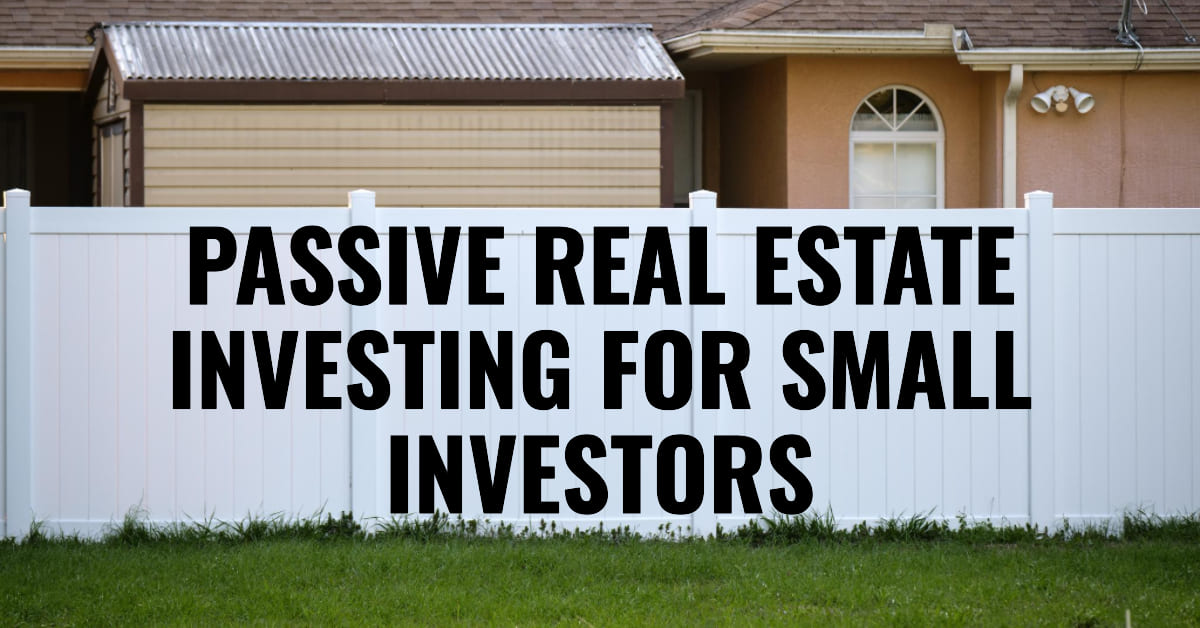
Passive income is income that you earn without having to actively work for it. Real estate is a popular investment for small investors who want to generate passive income. There are a few different ways for small investors to make passive income from real estate, including:
- Rental Properties: By purchasing a property and renting it out, you can earn a regular stream of income from the rent payments.
- Real Estate Investment Trusts (REITs): REITs are companies that own and operate income-producing real estate. By investing in REITs, you can get exposure to the real estate market without having to buy and manage individual properties.
- Real Estate Crowdfunding: This is a relatively new way for small investors to invest in real estate. With real estate crowdfunding, you can pool your money with other investors to invest in a single property or real estate project.
- Fractional Ownership: With fractional ownership, you can buy a small share of a property, which gives you the right to a portion of the rental income.
- Leased properties: You can also invest in leased properties, such as cell towers or parking garages. The tenant will pay you a monthly lease payment, and you'll be responsible for maintenance and repairs.
- Real estate notes: You can invest in real estate notes, which are loans that are secured by real estate. The borrower will make payments to you on the note, and you'll receive interest income.
No matter which method you choose, it's important to do your research and understand the risks involved in real estate investing. With careful planning and execution, you can make passive income from real estate and build wealth over time.
Additional Tips for Small Investors for Making Passive Income in Real Estate
Here are some additional tips for small investors who are interested in making passive income from real estate:
- Start Small: Don't try to buy too much property too soon. Start with one or two properties and gradually increase your investment as you gain experience.
- Choose the Right Property: When choosing a property to invest in, look for a property that is in a good location and that has good rental demand.
- Get Help from a Professional: If you're not familiar with the real estate market, it's a good idea to get help from a real estate agent or financial advisor.
- Get a Good Property Manager: If you don't want to be a landlord, you can hire a property manager to handle the day-to-day operations of the property.
- Be Patient: It takes time to build a successful real estate portfolio. Don't expect to get rich quickly.
- Be Prepared to Work: Even if you hire a property manager, there will still be some work involved in owning rental properties. Be prepared to deal with repairs, maintenance, and tenant issues.
The Benefits of Passive Income from Real Estate
Passive income from real estate can offer a number of benefits for small investors, including:
- Regular Income: Rental properties can provide a regular stream of income, which can help to supplement your retirement income or pay off debt.
- Tax Benefits: Real estate investments can offer a number of tax benefits, such as depreciation deductions and passive income tax breaks.
- Appreciation: Real estate can appreciate in value over time, which can help you to build wealth.
- Leverage: Real estate investors can use leverage to purchase properties with a smaller down payment, which can help them to grow their investments faster.
- Diversification: Real estate can be a good way to diversify your investment portfolio and reduce your risk.
Risks Associated with Real Estate Investing
Of course, there are also some risks associated with investing in real estate, such as:
- Illiquidity: Real estate can be illiquid, meaning it can be difficult to sell quickly if you need cash.
- Maintenance: Rental properties require maintenance and repairs, which can be costly.
- Tenant Risk: There is always the risk that your tenants will not pay rent or damage the property.
Despite the risks, passive income from real estate can be a great way to build wealth and achieve financial independence. If you are considering investing in real estate, it is important to do your research and understand the risks involved.
Conclusion for Small Investors
The best way for small investors to make passive income from real estate will depend on their individual circumstances and goals. Whether you choose to invest in rental properties, real estate investment trusts (REITs), real estate crowdfunding, or fractional ownership, it's crucial to tailor your investment strategy to your specific financial situation.
For small investors, it is particularly important to do thorough research and gain a clear understanding of the risks involved before committing to real estate investments. Real estate can offer significant rewards, but it also comes with risks, including illiquidity, maintenance expenses, and tenant-related challenges. Small investors should approach these opportunities with caution and ensure they are well-prepared.
With careful planning and execution, small investors can harness the power of real estate to generate a reliable source of passive income. Real estate investments can provide small investors with advantages such as regular income, potential tax benefits, property appreciation, leverage opportunities, and the ability to diversify their investment portfolio. By taking a prudent and patient approach, small investors can work towards achieving their financial objectives through real estate.

